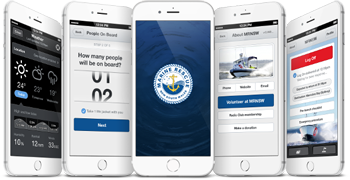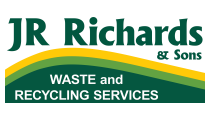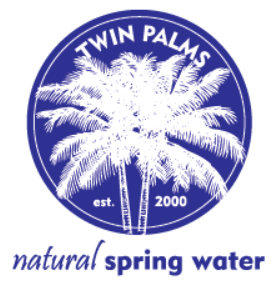Below is a list that you can use to check that your boat is ready for the boating season. This is a basic list and you might want to contact your local Maritime office or visit their web site for a complete list of what equipment is required and under what circumstances.
If you are unsure as to the rules that apply – Maritime is your source of information. You can get to their web site at http://www.maritime.nsw.gov.au
| Item | When Required | Comments |
|---|---|---|
| Anchor with chain and/or line | Always | Make sure the anchor line and connectors are free from corrosion/fraying |
| Bilge pump or bailer | Always | |
| Compass | Offshore | |
| Distress Flares | Offshore | |
| EPIRB | Offshore | Make sure the EPIRB is inside the expiry time and do NOT test it by turning it on. If your EPIRB has expired then you need to send it to an authorised agent to get it checked. Your local marine shop should be able to help you with that. |
| Fire extinguisher | Always | If you boat has an electric start motor or a gas or fuel stove then you must have a fire extinguisher |
| VHF or Marine Radio | Offshore | Make a call into Marine Rescue Forster Tuncurry on your radio to make sure it is has a good signal and is clear. Check that the antenna is not showing signs of wear around the mounts. |
| Navigation Lights | Always | You may not be planning to be out between sunset and sunrise, but if you are caught out unexpectedly then you have to have them. Make sure they work now. |
| Paddles or oars | Always | If your boat is 6 meters or less in length it must have paddles or oars – or a 2nd means of propulsion |
| Life Jacket (PFD) | Always | It is crucial that you check your PFDs to make sure they are in good condition and working order. If your PFDs are inflatable and/or have a light then make sure they are checked by an authorised person and within the expiry period. |
| Waterproof flash light (Torch) | Always | Again you may not be planning to be out during dark hours but you just don’t know when circumstances may force it. |
| V Sheet | Offshore | Got one of these with ropes to tie it down ? |
| Chart for the area | Offshore | It is always smart to have a chart of the local waters on hand. Even in the lake it is not hard to get disoriented and even lost. If you don’t have a chart – make the effort to get one. If you do have a chart – make sure it is current. The charts for the lakes have changed quite a lot this year. |
| First Aid Kit | Check to make sure your first aid kit is fully supplied and up to date. | |
| Fresh Water | Make sure you have a supply of fresh drinking water on board. Our fabulous summer boating months can bring on dehydration very quickly. | |
| Pre-mix fuel | Does your boat use pre-mix fuel? Make sure it is not old and likely to cause the motor to stop | |
| Battery | Check that the battery is holding its charge and check the battery connections for corrosion or acid buildup around the connection terminals. | |
| Drain Plugs | Check that your boats drain plugs are clean, easy to screw in/out and are fastened with a safety clip so they can’t fall out and get lost. | |
| Trailer | Of course if your boat is on a trailer check it carefully to make sure that the safety chain is in good order, the lights are working and the wheel bearings have not deteriorated over the off season period. |
What else can I do to make sure my family and friends are safe on my boat ?
It really does not take a lot, but here are some specific things.
- Make sure people are wearing life jackets.
- Have a talk with your children and/or other guests about safety aboard.
- Moving about the boat
- Where are the life jackets (hopefully being worn)
- Where is the fire extinguisher
- What to do if some one falls overboard.
- What to do if YOU are hurt
- How to use the radio to get help
- Make sure you leave your radio on the whole time you are out. Channel 16 for VHF and Channel 88 for 27Mhz Radios.
- It might be a bit noisy now and then but if you need someone else to use the radio to call for help then having it switched on and on the right channel will make it a lot easier.
- If things are pretty bad and you have to abandon ship – you don’t want to be fiddling with getting the radio on and to the correct channel. A quick message sent might make the difference between life and death.
- Marine Rescue will broadcast a “SECURITE” message if there are any important weather announcements or if there is some hazard that local boats need to know about. This happens quite often and you can’t hear it if the radio is switched off or on the wrong channel.
- Logon with Marine Rescue when you go outside to unsheltered waters. You can always logon even if you are staying inside in the lake. If you are overdue – we will know where to start looking for you if you logged on and told us where you will be going.
- When you logon – ask for any weather warnings that might have come from the Bureau of Meteorology. Ask about the current tides and the wind. If you are planning to go outside the heads ask about the bar/entrance conditions.
- If you don’t have a radio or if it is not working you can logon with Marine Rescue with your mobile phone. The number is 6554 5458 – better yet – get the radio fixed before you go out.
- If something goes wrong and you need help – remember Marine Rescue is a free service and in Forster Tuncurry we operate seven days / 24 hours per day. Don’t wait too long before deciding you need help. If you have a problem and request assistance you can always cancel the request if you get things under control again.
- If things get bad and you have to abandon ship try to send a quick radio message. If you get a chance say it twice. The things you need to say are:
Position Do your best – lat/long is great but it might have to be something like “half a mile out from Bennetts Head” Problem Brief and concise “We are taking on water” or “Fire in cabin” or “swamped and going down” People How many people are on board? Are any hurt? “There are 4 persons on board, one serious burns”











